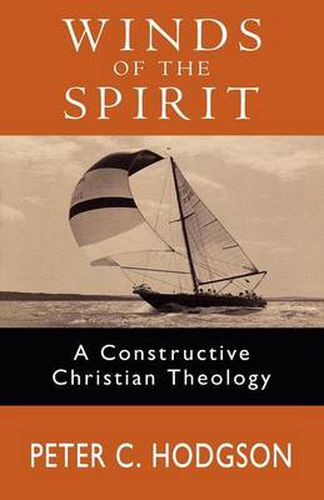Readings Newsletter
Become a Readings Member to make your shopping experience even easier.
Sign in or sign up for free!
You’re not far away from qualifying for FREE standard shipping within Australia
You’ve qualified for FREE standard shipping within Australia
The cart is loading…






This title is printed to order. This book may have been self-published. If so, we cannot guarantee the quality of the content. In the main most books will have gone through the editing process however some may not. We therefore suggest that you be aware of this before ordering this book. If in doubt check either the author or publisher’s details as we are unable to accept any returns unless they are faulty. Please contact us if you have any questions.
For students, this new book may well prove to be the most important one-volume treatment of systematic theology since John Macquarrie’s Principles of. Christian Theology. The approach it takes, however, is a very different one. Professor Hodgson believes that theology requires a continual process of interpretation that constructs new visions of Christian faith and practice from resources provided by scripture, tradition, reason and experience in the context of contemporary cultural challenges. The fundamental challenge of postmodernity seems to be the loss of any meaningful discourse about God. Yet in the crisis there may be hopeful signs, in the form of quests in connection with emancipation, ecology and dialogue, in search of freedom, love and wholeness. It is these that provide the structure for the book. Theology is drawn and driven by winds of the Spirit: an image which gives the book its title. The author compares theology with sailing, the ship of theology having no foundation other than itself, no external prop, but only the structural integrity and interplay of its component parts, enabling it to float and sail. And imagery apart, here is an always fascinating treatment of thinking theologically, the resources and dimensions of theology, the role of liberation and feminist theology, science and ecological sensibility, inter-religious dialogue, faith and reason, creation and christology and above all the doctrine of the presence of the living Spirit of Christ.
$9.00 standard shipping within Australia
FREE standard shipping within Australia for orders over $100.00
Express & International shipping calculated at checkout
This title is printed to order. This book may have been self-published. If so, we cannot guarantee the quality of the content. In the main most books will have gone through the editing process however some may not. We therefore suggest that you be aware of this before ordering this book. If in doubt check either the author or publisher’s details as we are unable to accept any returns unless they are faulty. Please contact us if you have any questions.
For students, this new book may well prove to be the most important one-volume treatment of systematic theology since John Macquarrie’s Principles of. Christian Theology. The approach it takes, however, is a very different one. Professor Hodgson believes that theology requires a continual process of interpretation that constructs new visions of Christian faith and practice from resources provided by scripture, tradition, reason and experience in the context of contemporary cultural challenges. The fundamental challenge of postmodernity seems to be the loss of any meaningful discourse about God. Yet in the crisis there may be hopeful signs, in the form of quests in connection with emancipation, ecology and dialogue, in search of freedom, love and wholeness. It is these that provide the structure for the book. Theology is drawn and driven by winds of the Spirit: an image which gives the book its title. The author compares theology with sailing, the ship of theology having no foundation other than itself, no external prop, but only the structural integrity and interplay of its component parts, enabling it to float and sail. And imagery apart, here is an always fascinating treatment of thinking theologically, the resources and dimensions of theology, the role of liberation and feminist theology, science and ecological sensibility, inter-religious dialogue, faith and reason, creation and christology and above all the doctrine of the presence of the living Spirit of Christ.